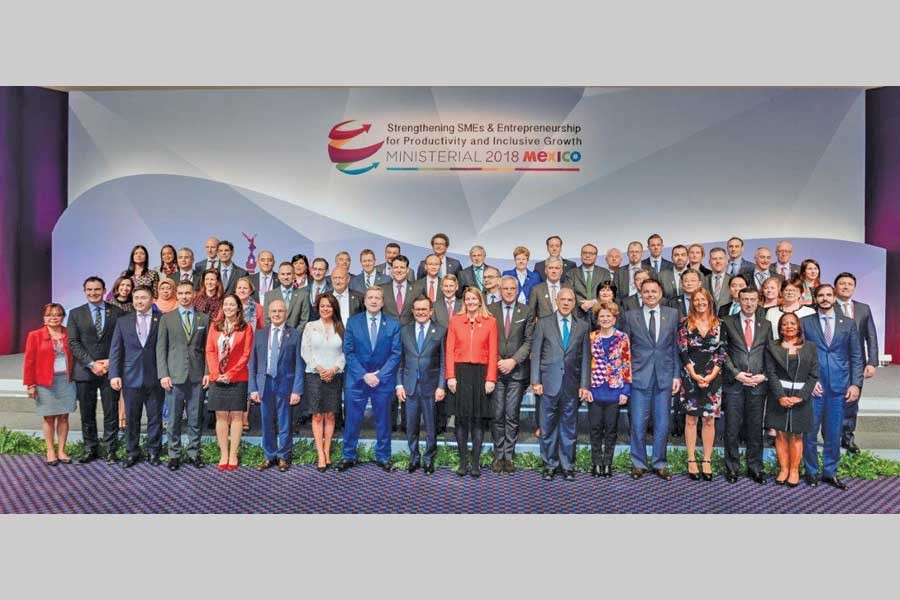There is an almost enviable inevitability of big business dictating global economic integration. It suits everyone all around barring the general public. George Soros is not British, nor European yet he gleefully poured personal money to establish what most, apart from British voters, knew that without integration Britain won't survive for long. That impacted the sterling so badly that the UK pulled the currency from the Euro stock market to prevent total collapse.
Whatever the politics, national leaders rarely go south on such matters, given the reliance on donations to fund election campaigns and corporation taxes that fund budgets. That some of those funds come from shady sources has caused statesmen to trip over their shoelaces. Nicolas Sarkozy is one of them, the UK ruling party combined is another. The future will probably reveal others. Theresa May, a staunch 'remain' campaigner is having to go against her instinct in carrying out her voters' demand. And as we see it, the list of compromises she has made undoes the list of 'to dos' and 'non-negotiables'.
One of democracy's dark sides is that it allows, nay sparks megalomania that goes against the essential principles of statecraft. There was a time when business opportunities defined policies. Cost efficiency, by which the end product remained affordable led to 'outsourcing', in other words, cheaper and more efficient goods, parts and processes. Inevitably, this resulted in job-losses. The promise of alternate jobs was not kept; discontent simmered. This did, however, suit the developing and poor countries that didn't have capacity for big-scale production but plenty of cheap labour. Thus began the call-centres and specialisation of parts manufacture. But ever since the infamous crash of the global economy nothing has really worked in kick-starting activity to increase consumption and demand. The trillion-dollar sop approved by Barack Obama for the US economy was painfully slow in really working.
And now Mr. Trump's 'America First' policy is undoing all those years of negotiations and expenses to arrive at a workable World Trade Organisation (WTO) agreement, North American Free Trade Agreement (NAFTA) and the Climate Change deal to mention a few. The recent trade war between the US and China has repercussions as well as benefits. Steel companies will rise from ruins in the US but that doesn't assure cheaper product. US farmers will get hit by the retaliatory duties China has proposed on goods such as pork, wine and soybean seeds. Technology companies, having milked profits by outsourcing manufacture to China (think iPhones), now have the prospect not being as attractive. Relocating manufacture to the US will mean costs going under the minimum wage cap. There's also the spin-off effect. South Korea has made it clear, the US tax hike in imports will impact its own contribution to parts manufactured in China in terms of further outsourcing.
There is, yet another area that must be rankling in the minds of developing and poorer countries. The targets of direct investments they require to improve their economies could be rudely off the mark. Mr. Trump wants businesses to bring back the outsourced elements to the US and it hits, among others the 'Make in India' theory propagated by Mr. Narendra Modi. Bangladesh is eager that the 200 or so economic zones are populated quickly by foreign investments and to that extent the government has bent backwards to float the concept of Indian, Chinese, Japanese and Korean economic zones. Such investments too, impact Mr. Modi's vision and indirectly, given that Japan, China and South Korea will invest in cost saving enterprises, even their outsource contracts, that of the US.
In such a situation, the Prime Minister's announcement of setting up small and medium enterprise (SME) advisory units across the country is both refreshing and welcome. This scribe had repeatedly pleaded for banks and loan offering institutions to help SMEs in their business planning and more importantly assist in connecting backward linkage. The US is good at many things. Then again not in everything. But when patriotism overrules common sense, one is tempted to recall Leo Tolstoy's view that 'for wars to be stopped, patriotism needs to be done away with'.


